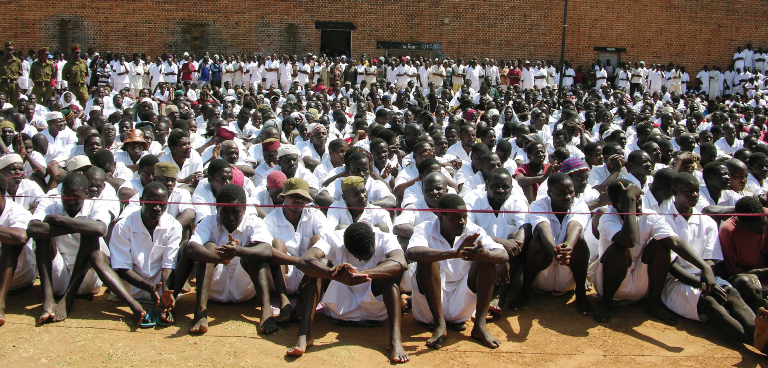Committee wants prison nutrition crisis sorted
A Parliamentary Committee on Social and Community Affairs report on the food crisis in prisons has noted that reduced food rations in the 2022/23 National Budget could be the cause of a crisis which has seen one prisoner losing his life to malnutrition.
Presenting the report in Parliament on Wednesday, the committee’s chairperson Savel Kafwafwa observed that food ration per prisoner in the country is K14 381 per month, which translates to K479 per prisoner per day, but in the 2022/23 financial year, the Malawi Prison Services (MPS) was allocated K217 per prisoner per day.

He said: “The food ration was covering maize, beans, with meat and at times fish in between, and that also includes salt and firewood, which was inadequate.”
The committee also learnt that as of November 14 2022, Treasury had paid Admarc to provide MPS with 25 000 kilogrammes (kg) of maize instead of the
required 33 000kg, but it was only enough to last up to January 23.
This meant that the food crisis in prisons would resurface if there was no other supply to cover February and March 2023—the period before the 2023/24 National Budget was passed to allocate resources to MPS.
“The committee also noted that even though the MPS had received the maize bailout from Admarc, they did not have enough funds to buy relish and firewood, such that the prisoners were eating nsima without relish, while some of them were adding sugar or salt in it, just to give it some taste,” said Kafwafwa, Dedza North legislator, (Malawi Congress Party).
The committee recommended the amendment of the Malawi Prison Services Act to allow it to generate income using different means, such as charging government institutions for labour provided by the prisoners.
At the moment, the Act does not provide for charged labour, as prisoners provide labour to the government in various ways such as assisting city council’s sweeping exercises for free.
On his part, Mulanje Bale lawmaker Victor Musowa (Democratic Progressive Party) wondered how leaders feel to see prisoners going hungry.
Mulanje West parliamentarian Yusuf Nthenda called on the need to change laws and align them with what other countries do, highlighting that the prisoners taking food once a day is a human rights violation.
Following the nutrition crisis, the Malawi Human Rights Commission has written to the Prison authorities to comply with international obligations that guarantee prisoners’ nutrition.





